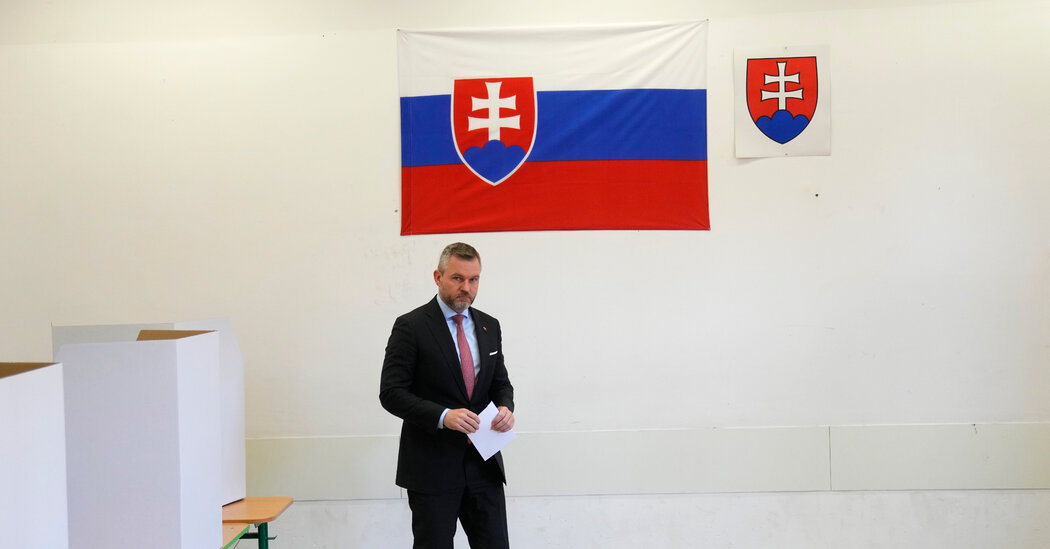
Voters in Slovakia strengthened the grip of pro-Russian political forces in Central Europe on Saturday, handing victory in the presidential election to a candidate who opposes providing military and financial aid to Ukraine.
With 99% of votes counted, the official tally showed Peter Pellegrini, an ally of populist Slovak Prime Minister Robert Fico, the winner with 53% of the vote in the presidential runoff. Despite the limited powers of the presidency in Slovakia, the elections were widely seen as a test of strength between political camps with sharply different views on Russia.
The defeated candidate, former Foreign Minister Ivan Korcok, is a staunch supporter of Ukraine and critical of Fico, a combative veteran politician who aligned himself with Hungarian Prime Minister Viktor Orban in opposing aid to Ukraine and challenging traditional views within the European Union. .
With Fico at his side, Pellegrini declared victory early Sunday morning, just after Korcok had admitted defeat.
Korcok came first among nine candidates in the first round of voting on March 23, but lost in Saturday's clash with Pellegrini, who appears to have garnered votes that in the first round went to an anti-NATO nationalist. who came third.
In the campaign leading up to the vote, Pellegrini copied the tactic used by Orban during Hungary's 2022 elections, in which his ruling party falsely claimed that the main opposition leader wanted to send Hungarian soldiers to fight against Russia in Ukraine. . Pellegrini used the same smear against Korcok, calling him a warmonger intent on sending Slovak troops to Ukraine.
Korcok has insisted he has no such plan – which is not something a Slovak president has the power to implement anyway – but has had difficulty overcoming a miasma of misinformation pumped out by pro-Slovakian websites and social media accounts. Russians.
His defeat is a big boost for Fico, who can now push forward his agenda without interference from the presidency. This is a marked change from the tenure of the outgoing president, Zuzana Caputova, an outspoken, pro-Western liberal who has used her limited powers to resist Fico's drift toward Russia and her efforts to limit the judiciary's capacity to prosecute corruption. She did not run for a new mandate, saying she was exhausted “from a professional and human point of view”.
Detained by Caputova, Fico refrained from engaging with fellow leaders on Ukraine during European Union summits in Brussels. Pellegrini's election, however, could lead to a more confrontational approach like that of Hungary, the European bloc's inveterate dissident.
In public statements, Fico has joined Orban in pushing for what he calls “peace” in Ukraine, arguing that the war will drag on indefinitely without a quick negotiated solution. Ukraine and its Western supporters believe an end to the war is impossible unless Russia gives up the occupied territories.
Korcok, a career diplomat who served as Slovakia's ambassador to Washington from 2018 to 2020, dismissed calls for immediate “peace” as a surrender to Russia's goal of holding Ukrainian land. He supports the position that providing military and financial support to Ukraine is the only way to bring a lasting end to the conflict.
Fico, a veteran politician who ended a previous stint as prime minister by resigning in 2018 amid a swirl of corruption allegations, has also followed Orban in seeking to neutralize the judiciary and casting Ukraine's supporters as disloyal lackeys of the states United. States.
Fico returned to power after September's general election, reviving a political career that many had considered over when he resigned amid large street protests after the killing of an investigative journalist who was investigating government corruption.
Pavol Strba contributed reporting from Bratislava, Slovakia.
